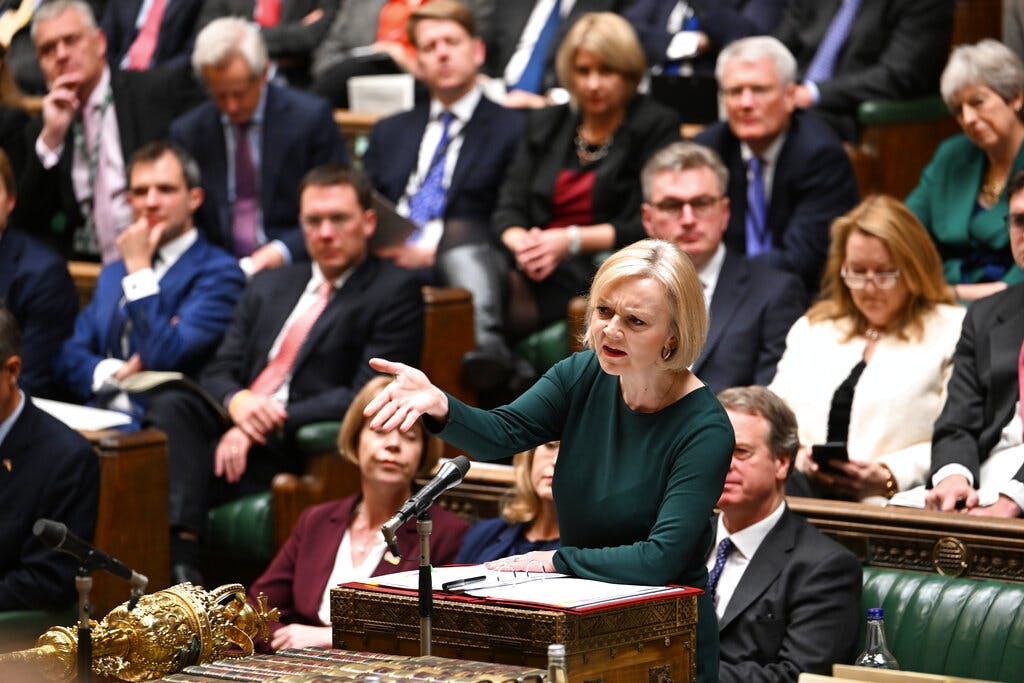Liz Truss Races the Clock
Can the prime minister’s new book — ‘Ten Years To Save the West’ — put her ahead of the coming crisis?

The first thing we did upon snagging a copy of Prime Minister Truss’ new book, “Ten Years To Save the West,” was to query the Sun’s Brexit Diarist, Stephen MacLean. Ever the optimist, Mr. MacLean quips that Ms. Truss is “delusional if she thinks there are ‘ten’ years left.” Despite such prognostications, Ms. Truss’ new book — part memoir, part manifesto — offers counsel that could help the West’s cause.
After all, Ms. Truss writes, she acceded to office at a time when the West is buffeted by “the rise of China and renewed aggression from Russia, Iran, and their proxies.” At her first meeting of the G-7, she saw President Biden, Prime Minister Trudeu, and President Macron, and mused whether “the fact that the Global Left has been in charge emboldened our adversaries?” Plus, too, she thought: “Why am I the only conservative in the room?”
Part of the problem, Ms. Truss contends, is the “fundamentally unserious” dialogue today, led by a “political establishment driven by short-term popularity, drifting on the prevailing winds of fashionable commentary.” Ms. Truss, for her part, frames politics as a “battle of ideas.” She touts her “strong views about the bold changes needed to ensure that freedom and democracy win.” That, she avers, “means challenging consensus.”
Ms. Truss attempted just that during her all too brief tenure at 10 Downing Street. Tackling Britain’s moribund economy and hoping to capitalize on the opportunity of Brexit, she pitched a bold supply-side tax cut to get things moving. Yet what Ms. Truss calls an “anti-growth coalition” wheeled on her — aided in part by the International Monetary Fund — and sparked a market crisis that torpedoed the proposed tax cut. Her resignation followed.
Her vision for post-Brexit Britain, Ms. Truss recently told the Financial Times, is for “a much bolder economic model.” She frames it as “more like Singapore on steroids than a Norway on valium.” Standing in the way is “a very, very powerful bureaucracy,” she added, “that, essentially, has resisted change.” She laments that “the Conservative party and politicians in general have tended to go along with it.”
In any event, Ms. Truss reckons, “there is no time for finger-pointing. We need to start winning the argument.” It’s not “just a British problem,” she adds. “The conservative movement across the West has been faltering for a generation.” While it appeared that her predecessor, Margaret Thatcher, and President Reagan “had shifted the landscape permanently,” Ms. Truss’ failed tax cut is as strong a proof as any that, as she writes, “that work has been undone.”
It’s a testament to Ms. Truss’ ideas that she has aroused so much ire — not to mention mockery — in the liberal press. The FT sneers that, if not for the two weeks of mourning for Elizabeth, “her premiership may not have lasted as long as it did.” A Times op-ed Monday sniffed that “If this were the 19th century, Ms. Truss would have perhaps exiled herself to a country estate where peacocks roamed the grounds or fought her enemies with pistols.”
It’s to Ms. Truss’ credit that, instead of retreating from the arena, she is unbowed and eager to clear away the rot that is impeding the West — “creeping left-wing notions.” If these are allowed to fester, she warns, “the free world” will find itself “overtaken by its opponents.” By that, she means, the “West will be defeated by China, and authoritarian regimes will defeat liberal democracies.” She warns that “it requires firm action to counter the threat.”
Ms. Truss says her book is timed to elections to be held in America and Britain in 2024, as well as in Canada and Australia in 2025. She envisions a kind of pan-Anglosphere agenda “to rediscover genuine conservatism at home and to reinvigorate the power of the West to defend freedom abroad.” If it’s hard to find fault with that program, it serves as a reminder that Ms. Truss’ untimely departure from office was as much a loss to Britain as it was to the rest of us.

